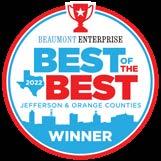











With summer here we are ready to help you with your monetary needs whether it be a vacation loan, new car, RV, boat or a mortgage loan. We have many products to choose from and money to lend. Come to one of our branches and check out our new virtual suites where you will find a friendly face on the other end willing and eager to help you. We are almost complete with our branch enhancements and we hope you like the new look. If you can’t make it to a branch, check out the easy way you can reach Gulf Credit Union from anywhere with our new Gulf Anywhere service, as we continue to find ways to serve our members in the most efficient ways. You may have noticed that construction has started on our Administration building next to our Mid County location. We hope to be moved in by November. We expect our new ATM will be in our Bridge City location by the end of July. We have a lot going on this summer and look forward to serving you, our members, with your financial needs. Have a great summer!




Gulf Credit Union is here to help you with the purchase of commercial real estate, cash out equity loans, or refinancing existing loans. We offer great rates and quick turnaround times, with friendly staff to guide you through the process!
Things to know:
Down Payment- As an industry standard, when purchasing commercial real estate, a down payment will be required. This is generally 20 percent, but could vary depending on several factors.
Credit Score- Commercial loans require a higher credit score than typical consumer loans. Be prepared by monitoring your credit score in advance, and making sure that all your monthly notes are made timely.

Interest Rate- We offer competitive interest rates, with flexible terms to suit your commercial real estate needs. Rates vary due to many factors; contact us today to find your qualifying rate.
To apply for an investment property loan, contact one of our friendly staff members, or download an application from our website at gecu.org!
Subject to credit approval. Rates and terms may apply.
“A money mule is someone who, either wittingly or unwittingly, transfers or moves illegally acquired money on behalf of someone else. Money Mules fuel global fraud by depositing and moving illicit proceeds around the world, potentially funding human trafficking and terrorist financing. The majority of money mule activity takes place online either directly by fraudsters with accounts opened using stolen or false identities or unknowing by individuals who believe they are employed for legitimate work targeted through scams.
• Online Scams: Money mules can be recruited through online scams such as employment scams, romance scams or investment scams.
• Identity Theft: Criminals can utilize someone's identity or pseudo-identity to commit a fraud.
• In Person: Money mules can be approached in person by money launderers.
A Money Mule Can:
1. Receive money into their own bank account.
2. Transfer money from their account to another.
3. Open a new account in their name that other persons then use to move illegal funds.
Money Mules help criminals remain anonymous so don’t fall victim if someone you are unfamiliar with asks you to do either of the activities noted above." Always contact a GCU representative for more information. Information from Verafin
Traveling can be an exciting and enriching experience, whether you’re exploring new destinations or embarking on a business trip. However, amidst the anticipation and planning, it’s easy to overlook a crucial step that can help prevent unnecessary complications during your journey: submitting a travel notification on your debit cards. While it may seem like a small detail, taking a few minutes to inform your financial institution about your travel plans can save you from potential headaches and ensure smooth financial transactions while you’re away from home.
1. Avoid unnecessary card declines: One of the most frustrating situations while traveling is having your debit card declined when you try to make a purchase or withdraw cash. Financial Institutions employ security measures to protect our members from fraudulent transactions. Unusual or unexpected card activity, such as transactions in a different country or region, can trigger these security protocols, leading to card declinations. By notifying us in advance about your travel plans, we can note your itinerary and destination, reducing the chances of false alarms and ensuring your card remains active throughout your trip.
2. Enhanced security: Traveling, especially in unfamiliar locations, can expose you to certain risks. By notifying your financial institution about your travel plans, you create an additional layer of security for your debit card. Financial institutions monitor accounts for fraudulent activity, and if we are aware of your whereabouts, we can better distinguish between genuine transactions and potential fraud. This proactive step helps safeguard your finances and protects you from unauthorized use of your card, giving you peace of mind during your travels.
Submitting a travel notification on your debit card is a simple yet critical step that should not be overlooked before embarking on your next adventure. Contact our Member Service Department at 409.963.1191 ahead of time, informing them of your travel dates, destinations, and any stopovers along the way.
In the event of a mandatory evacuation all GCU locations will close immediately.
Hurricane Season is June 1 - November 30
q Make an Evacuation Plan
Find activated evacuation routes here: DriveTexas.org or by dialing
800.452.9292. Call 2-1-1 to find out if you live in an evacuation zone.
q Sign Up for Emergency Alerts
Make sure your device is enabled to receive Wireless Emergency Alerts (WEAs)
q Register with the State of Texas Emergency Assistance Registry (STEAR)
https://stear.tdem.texas.gov/ or call 2-1-1 if you live in an evacuation zone and:
• have a disability or medical needs and do not have a car or other vehicle to use in an evacuation.
• have a disability or medical needs and do not have friends or family to help in an evacuation.
**STEAR Registry information collected is confidential**
q Prepare an Emergency Supply Kit
Learn how to build an emergency kit here: https://www.ready.gov/build-a-kit
q Review Your Home Insurance Policy
Print a copy and have it ready to go should you need to evacuate.
Hurricane Preparedness Online Resources
Texas Division of Emergency Management www.tdem.texas.gov
Texas Department of State Health Services www.texasready.gov
American Red Cross www.redcross.org
U.S. Department of Homeland Security www.ready.gov
Office of the Texas Governor Greg Abbott www.gov.texas.gov
In addition to physical preparations, it's as important to have a financial plan. Prepare yourself by setting up your digital wallet, gathering your important documents in a waterproof container, downloading location and weather apps, and reviewing your homeowners' insurance policy.
Check out our website for a list of resources to help you to be prepared at gecu.org/tools/
It's probably obvious, but takeout and even quick "cheap" burgers add up quickly. That's why hitting up your go-to restaurant less often is one of the most effective ways to lower your food budget. Of course, this doesn't mean to stop eating out entirely. Restaurants are cultural, they're social - they're not the enemy, but, when it comes to your budget, they can turn into a bit of a black hole. So how often should you eat out? It’s up to you. The key is moderation and balance. If you can’t stomach the idea of eating out less, know that you’ll have to cut your budget in other categories. Just remember that eating out truly is one of the largest chunks of your food budget, so think critically and carefully about how much you’re currently spending at restaurants and how much you want to be spending.

We’ve all been advised to create a grocery list and stick to it, but that’s only one way to save money at the store. Coupons, even if the savings seem small ($0.50 here, $1 there), make a difference in the long run. Also, grocery stores often send out a weekly ad; take notice and plan your meals for the weak around discounts. Finally, try buying staples that are affordable and versatile, things like bread, pasta, beans, and rice. You can use those things for a whole bunch of different meals and tailor them to your tastes.
Another full vegetable drawer ready for the garbage can? Wasting food is wasting money. Try canned or frozen produce instead! It lasts much longer and is just as good for you. Preservatives can be rinsed off canned foods and frozen is a-ok. Do your best to avoid spending money on food you won’t eat, and remember that good intentions can often pave a road to rotten zucchini...and lettuce...and grapes.
You can save money per package or ounce when you buy in bulk. It’s a great strategy for foods you buy and eat often. Keep in mind, though, that buying more than you’ll actually eat isn’t saving you any money. Do you really need 15 pounds of onions? Plan how you’ll use something you buy in bulk before taking it to the register.
Buying food without a budget is like forgetting your umbrella in a downpour—a recipe for disaster. In order to create a budget, though, you’ll need to know what’s reasonable. To figure that out, track your spending. After a month or two, assess how much you’re actually spending on food each week and then make a plan. Can you cut back? By how much? What’s doable? Once you have a baseline, you can start making adjustments. Create a spending limit and stick to it!
Try making big meals a few times a week - meals that you couldn’t possibly eat at once! Why? Leftovers! Leftovers are a great way to have ready-to-go meals and snacks that you don’t have to spend a lot for. Of course, try not to waste food! But if you’ll eat the leftovers, making them can stretch ingredients longer and get you more bang for your buck.

Buying food is essential, but if you’re not careful, it can also eat into your budget. We’ve all given into the temptation of dinner at an expensive restaurant or a thoughtless trip to the grocery store where you throw anything and everything into the cart. Unfortunately, these expenses add up quickly and can cause your food budget to balloon into something unsustainable. If you’ve been wondering how to reduce your food bill, consider these eight strategies.
Meal prep isn’t just for the organized ones among us - no, seriously, everyone can meal prep. If you plan your meals ahead of time (or better yet, prepare them), you’ll be less likely to eat out when you’re in a bind or pressed for time. If this seems overwhelming, start small. Try making lunch the night before or putting together a dedicated drawer for go-to snacks (ooh and new picks each week?). You can also go big and cook the ingredients for a week of meals ahead of time or create “freezer meals” that you can pop into a slow cooker or oven. Whatever works for you is the perfect place to begin, and every bit of planning matters.

A lot of Americans need that little bit of a pick-me-up each morning—that’s fine! But recurring costs, like a daily latte, cause your money to disappear exponentially. Take coffee, for example. An average cup of coffee costs around $3. While that isn’t much on its own, a full month of 31 cups will cost you roughly $93. Meanwhile, a 12oz bag of coffee beans costs about $10 and gets you around 12 cups of coffee. That would mean you’re spending about $0.83 per cup, or just under $26 for a whole month. That’s a lot of savings over multiple months or years! If you need it, buy the extra cream or fancy toppings, too. It’ll still save you money in the long run.
Reducing your food bill is something most of us could really use, and yet, it’s one of the toughest expenses to cut down. It requires a complete shift in your mindset and a lot more awareness. But, with a little bit of effort, your changes can make a big difference.







Two of our leaders at the credit union participated in Leadership Programs over the past year. Amanda Baldwin, Talent and Benefits Director, is a graduate of Leadership Southeast Texas and Jessica Johnson, Branch Manager, is a graduate of Leadership Beaumont! Both programs present networking opportunities with leaders from a vast variety of careers and educate participants on opportunities and challenges in Beaumont and SETX.
| Educating Regional Leaders for 30 Years
The Remote Control Card feature empowers members to take charge of their financial transactions, making it a game changer in the realm of digital banking. Through a user-friendly mobile application, members can remotely manage and control their debit cards with ease.
TEMPORARILY LOCK/UNLOCK: Misplaced your debit card or suspect it may be lost? No worries! With the Remote Control Card feature, members can instantly lock their card to prevent unauthorized access. If the card is found, it can be easily unlocked, minimizing the risk of fraudulent activity.
Seamlessly managing debit card operations through a mobile application has never been easier, providing peace of mind and enhanced security. Embrace the future of banking and unlock a new level of flexibility and control with our Remote Control Card feature.
Congratulations to the graduating senior class of 2023. We are proud to announce that there are ten recipients of the Gulf Credit Union $1,000 scholarship this year. We commend you for your efforts, and we wish you all the best in your future endeavors.













Gulf Credit Union is here to remove the stress and make your home buying experience a breeze. Our mortgage specialists will guide you from beginning to end. Whether you’re purchasing a home, buying land, building a barndominium or getting equity out of your existing home, we’re here to ease your mind. We offer low competitive fixed rates, No PMI, and we service all of our loans in-house. Your loan will stay with us until the end of your term and we will continue to be here to advise and answer any questions you may have.


To apply for a mortgage loan, contact a member of our team or apply online at http://gulfcreditunion.lendingoutpost.com/



For more information about mortgage loans, visit gecu.org or scan the QR code.











SEPTEMBER
Labor
Monday,
OCTOBER
Columbus Day
Monday, October 9
NOVEMBER
Veterans Day
4

Saturday, November 11
Thanksgiving Day/Holiday
Thursday, November 23
Friday, November 24
Saturday, November 25
DECEMBER
Christmas Eve/Day
Saturday, December 23
Monday, December 25









Tuesday, December 26
